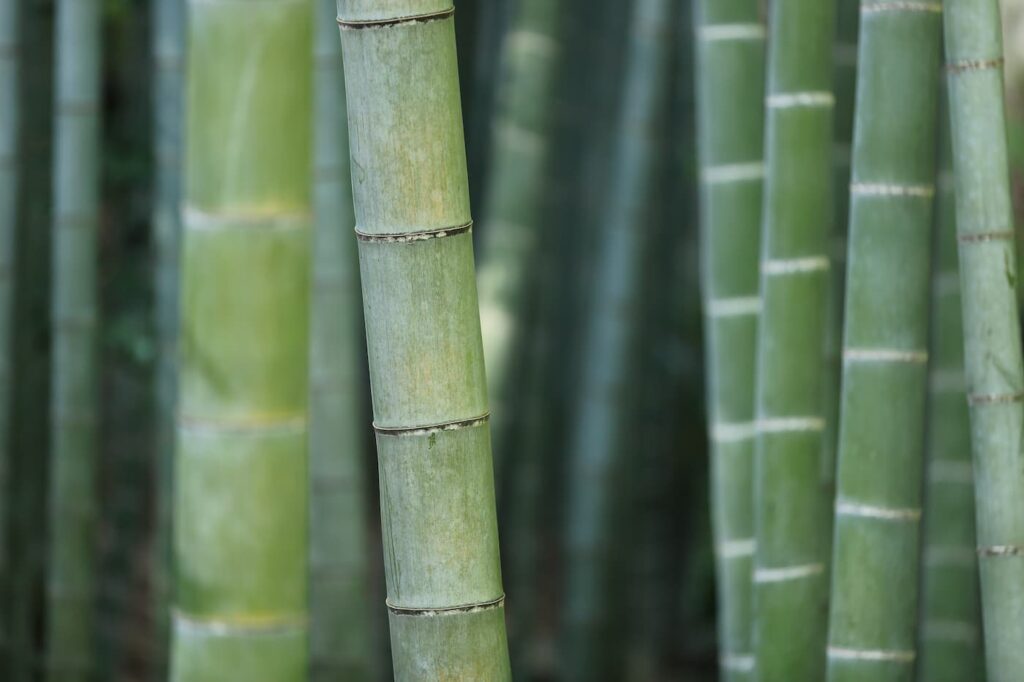If you’re a homeowner in the UK looking to sell your property, you know how important it is to maintain an attractive and well-kept garden. Curb appeal plays a significant role in enticing potential buyers, and one aspect of your outdoor space that may require attention is the presence of invasive weeds. Bamboo, in particular, has gained notoriety as a fast-growing and resilient plant that can quickly take over a garden if left unchecked. So, what’s the best way to deal with this green intruder? Is burning bamboo a good idea? Let’s dive in and explore the laws surrounding burning bamboo in the UK, as well as the methods involved.
Bamboo is not classified as an invasive species
Bamboo is invasive and can be very invasive but is not listed on the Schedule 9 list of the Wildlife and Countryside Act (1981) and so we can not make the statement that it is a listed invasive. This is not correct and actually is at the heart of the problem with bamboo. Except for Scotland where bamboo may come under the WANE Act 2011 where it may, in some circumstances, be found to be invasive. Consequently unlike Japanese Knotweed it is not considered a controlled waste. This means that it can be sent for composting along with all other ‘natural’ waste material.
While it may add an exotic touch to your garden, its rapid growth and ability to spread uncontrollably can cause serious problems for native plants and wildlife. As a responsible homeowner, it’s essential to take appropriate measures to control the spread of bamboo and prevent it from becoming a nuisance.
The laws around burning Bamboo
When it comes to removing bamboo from your property, burning may seem like an effective solution. However, before you grab your matches, it’s important to familiarise yourself with the laws and regulations governing the burning of vegetation in the UK. The Clean Air Act 1993 and the Environmental Protection Act 1990 contain provisions that regulate the burning of waste, including plant material.

Under these laws, it is generally prohibited to burn any waste that could cause pollution or harm to human health. The burning of bamboo, specifically, falls under this category. Bamboo contains high levels of silica, a substance that, when burned, can release harmful particulate matter into the air. This can have detrimental effects on air quality and pose a risk to respiratory health.
However, it’s worth noting that there are exceptions to the burning restrictions. If you have a small quantity of dry bamboo, you may be able to burn it under controlled conditions. This typically requires obtaining a permit from your local council or adhering to specific guidelines set by environmental authorities. It’s advisable to contact your council or consult with a professional in the field to ensure compliance with the regulations in your area.
Alternative methods of disposal for Bamboo
If burning bamboo is not a viable option, what alternatives are available for homeowners seeking to eradicate this invasive plant? Several methods can effectively control and remove bamboo from your garden. One commonly employed technique is mechanical removal, which involves cutting the bamboo stalks close to the ground and digging out the rhizomes, or underground stems. This process may need to be repeated multiple times to ensure complete eradication and unlike Japanese Knotweed it is not considered a controlled waste so it can be sent for composting with other ‘natural’ waste material.
Chemical control is a legitimate and effective control option but any person using a herbicide must adhere strictly to the label and that it is probably best to leave this to a professional due to the strict legislation regarding the selection and use of herbicides, which can include herbicides designed specifically for bamboo that are applied to the plant, which will translocate to the rhizomes and help prevent regrowth.
Additionally, bamboo control can be aided by regular maintenance practices. Regularly monitoring your garden for new shoots and promptly removing them can help prevent the spread of bamboo. Creating physical barriers, such as deep trenches or root barriers, can also help contain the rhizomes and prevent their lateral growth.
Seek professional guidance
In conclusion, while burning bamboo may initially seem like a convenient solution, it is important to consider the laws and regulations surrounding the burning of vegetation in the UK. Burning bamboo can release harmful pollutants into the air, potentially impacting air quality and human health. However, there are alternative methods available for controlling and removing bamboo, including mechanical removal, chemical control, and regular maintenance practices. By taking appropriate action, you can effectively manage bamboo growth in your garden and enhance the appeal of your property for potential buyers. Remember to consult with local authorities or professionals for guidance specific to your area, ensuring compliance with regulations while
Resources
- Title: “The Control and Management of Bamboo” URL: https://www.rhs.org.uk/advice/profile?pid=655
- Title: “Burning Waste: The Environmental Permitting (England and Wales) Regulations 2016” URL: https://www.gov.uk/guidance/burning-waste-the-environmental-permitting-england-and-wales-regulations-2016
- Title: “Air Pollution: What You Can Do” URL: https://www.gov.uk/guidance/air-pollution-what-you-can-do
- Title: “Invasive Non-native Species” URL: https://www.nonnativespecies.org/home/index.cfm
- Title: “Bamboo Control and Removal” URL: https://www.invasivespeciesireland.com/wp-content/uploads/2018/08/Invasive-Species-Ireland-Bamboo-Control-and-Removal-1.pdf









